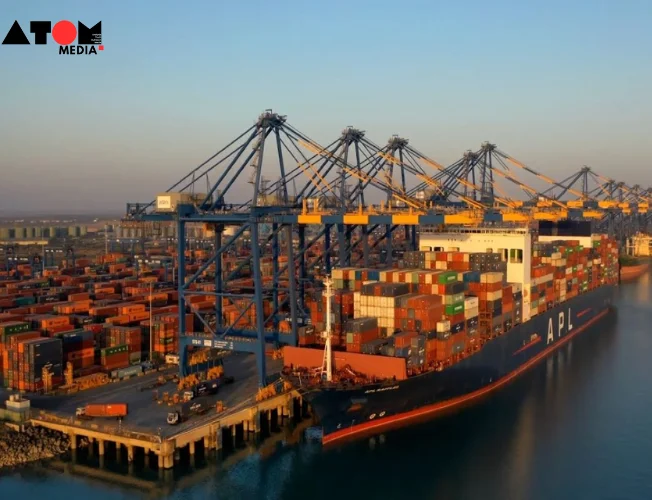In a significant move, Norges Bank, the central bank of Norway, has decided to exclude Adani Ports and Special Economic Zone (APSEZ) from its Government Pension Fund Global (GPFG). This decision, announced on May 15, 2024, is grounded in ethical concerns, specifically regarding the company’s involvement in human rights violations in conflict zones. The GPFG, one of the world’s largest sovereign wealth funds, holds nearly 1.5% of all publicly traded shares globally, with investments in approximately 9,000 companies.
Ethical Grounds for Exclusion
The exclusion of APSEZ follows a recommendation from the Council on Ethics, dated November 21, 2023. The council’s investigation revealed an “unacceptable risk” of APSEZ contributing to severe human rights violations during times of war and conflict. This recommendation led to the company’s removal from the GPFG, a fund renowned for its stringent ethical guidelines and commitment to responsible investment.
Historical Context and Observations
Adani Ports had been under scrutiny since March 2022 due to concerns over its operations in Myanmar. Despite APSEZ disclosing in May 2023 that it had sold its Myanmar port-related operations to Solar Energy Ltd., the lack of transparency regarding the buyer raised further ethical questions. The company’s inability to provide detailed information about the sale has left the Council on Ethics unable to verify the absence of links to entities involved in serious norm violations. This opacity ultimately contributed to the decision to exclude APSEZ from the GPFG.
Broader Implications
The exclusion of APSEZ is part of a broader ethical investment strategy employed by the GPFG. The fund’s guidelines allow it to divest from companies that impose significant costs on society and the environment, ensuring long-term sustainability. Besides APSEZ, two other companies, Weichai Power Co Ltd and L3Harris Technologies Inc, were also excluded from the GPFG on similar ethical grounds.
Financial Impact and Market Reaction
Following the announcement, Adani Ports’ shares saw a modest increase, closing at ₹1,344.75 per share, up 0.56% on the Bombay Stock Exchange (BSE). Despite the exclusion, the immediate market reaction appeared relatively muted. However, the long-term impact on investor confidence and the company’s reputation could be more significant.
The Government Pension Fund Global’s Ethical Framework
The GPFG was established following Norway’s discovery of oil in the North Sea, aimed at insulating the Norwegian economy from the volatility of oil revenues. The fund’s investment strategy is heavily influenced by environmental, social, and governance (ESG) considerations. It actively seeks to avoid investments that could lead to substantial ethical concerns or long-term unsustainability.
As of December 2023, the GPFG held a 0.24% stake in Adani Ports. While this might seem a small percentage, the fund’s divestment signals a strong stance on ethical investment. The GPFG’s decisions are closely watched by the global investment community, and such exclusions often prompt other institutional investors to reassess their portfolios.
The Broader Adani Group
The GPFG’s exclusion decision impacts not just APSEZ but could potentially influence perceptions of the broader Adani Group. The conglomerate, which has diverse interests ranging from energy to infrastructure, has faced various controversies over the years. Ethical scrutiny from major investors like the GPFG could lead to increased pressure on the group to enhance transparency and adhere to higher ethical standards.
Industry and Environmental Concerns
Adani Ports and Special Economic Zone Ltd is a major player in India’s logistics and port operations sector. The company’s involvement in various international projects, including those in conflict-prone regions, has often drawn criticism from human rights groups and environmental activists. The exclusion by GPFG underscores the growing importance of ESG criteria in global investment decisions.
The Future of Ethical Investments
The exclusion of Adani Ports by one of the world’s largest sovereign wealth funds highlights a broader trend in the investment world. Investors are increasingly prioritizing ethical considerations and long-term sustainability over short-term profits. This shift is not only a response to growing public awareness and demand for responsible business practices but also a strategic move to mitigate risks associated with unethical operations.
Conclusion
Norway’s decision to exclude Adani Ports from its Government Pension Fund Global is a landmark moment in the realm of ethical investing. It underscores the significant role of institutional investors in promoting human rights and sustainable business practices. As global scrutiny of corporate ethics intensifies, companies worldwide, including those within the Adani Group, may need to reassess their operations and strategies to align with the evolving standards of responsible investment.





